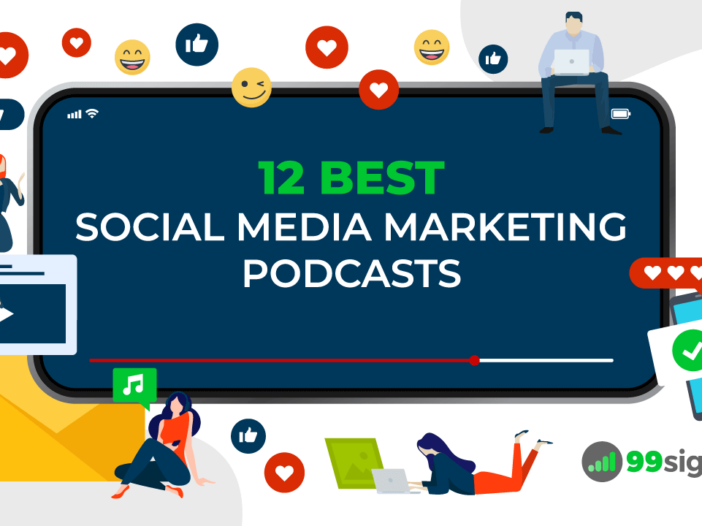Google issued a critical update to its Site Reputation Abuse policy on Tuesday, the culmination of a monthslong effort from the search platform to close a loophole that publishers had been using for years to generate passive affiliate revenue.
In the controversial SEO practice that Google is looking to end, publishers would allow third-party vendors to publish content—typically product recommendations with affiliate links—on their websites.
Because of the publishers’ strong search authority, these affiliate pages would get a boost in visibility and generate passive revenue, which the two companies would split.
For instance, a vendor called Forbes Marketplace (in which Forbes is a minority investor) creates financial content for CNN Underscored, the affiliate arm of CNN.
But the distinction between the two operations is practically invisible, leaving consumers unaware that the credit card reviews they are browsing on CNN Underscored are actually created by a third party. Some analysts pejoratively refer to the practice as “parasite SEO.”
Exclusive: Forbes, CNN, and More Lose Millions as New Google Policy Tanks Affiliate Businesses
In its original description of Site Reputation Abuse, which debuted in March, Google stipulated that the owner of a website had to have some involvement in producing the third-party content. If the publisher had a hand in the process, then there was no Site Reputation Abuse.
However, in the updated language from the new blog post, Google clarified that no level of publisher involvement in the process mitigates the violation. Going forward, any use of third-party content on a site to exploit the search authority of the publisher constitutes Site Reputation Abuse.
“We’ve heard very clearly from users that site reputation abuse—commonly referred to as ‘parasite SEO’—leads to a bad search experience for people,” Chris Nelson, a senior staff analyst of search ranking at Google, told ADWEEK. “Today’s policy update helps to crack down on this behavior.”
Despite the new language, not all third-party content violates the new policy. For instance, wire services, sponsored content, and news syndications are among the variety of exceptions Google lists on its official spam policy forum.
Site owners who have violated the new Site Reputation Abuse policy will receive a spam manual action, which occurs when a human reviewer at Google has determined that pages on the site are not compliant with Google spam policies.
In similar but less flagrant cases, Google also has a series of systems designed to detect if a section of a site is “independent or starkly different from” the main content of the site. In those situations, the search platform will treat these site sub-sections as standalone sites, meaning they will not get a ranking boost just because of the reputation of the main site.
This latter method of enforcement will reduce the search visibility of these sub-sections, leading to a decline in traffic.
“This doesn’t mean that these sub-sections have somehow been demoted or are in violation of our spam policies,” the blog post notes. “It simply means we’re measuring them independently, even if they are located within a site.”
The policy revision comes one week after reporting from ADWEEK detailed a steep decline in the search visibility of the affiliate arms of several premium publishers.
Beginning in July, the search visibility of the Forbes, Wall Street Journal, CNN, Fortune, and Time affiliate operations dropped sharply.
Between Sept. 12 and Oct. 31, search visibility declined 43% at Forbes Advisor, 77% at WSJ Buy-Side, 63% at CNN Underscored, 72% at Fortune Recommends, and 97% at Time Stamped, according to data compiled for ADWEEK by Sistrix.
Crucially, the declines were isolated only to the affiliate arms of these publishers, said Sistrix marketing manager Steve Paine. For example, CNN Underscored declined in search visibility, but CNN.com did not.
This pattern is highly atypical, according to Paine. It is rare to see such a small number of sites be affected by an SEO update, and it is rarer still to see site directories, rather than the domains themselves, experiencing isolated drop-offs.
Speaking with ADWEEK, several search analysts suspected that the drop-offs were related to these publishers violating the Site Reputation Abuse policy. All five publishers worked with third-party vendors to power—to varying degrees—their affiliate businesses.
In a statement provided to ADWEEK at the time, Google described the fundamental dynamic of Site Reputation Abuse without using the phrase specifically.
“We’re working to combat tactics where third parties try to exploit a site’s reputation just to rank well in search,” a Google spokesperson told ADWEEK. “We recently updated our spam policies to specifically target this type of behavior.”
The declines have led to material losses in revenue and traffic for the publishers.
But perhaps more critically, the crackdowns signal that the underlying model that animated these affiliate operations—working with a third party to run the business, then splitting the proceeds—is no longer viable.
Mark Stenberg is Adweek’s senior media reporter.
Adweek is the leading source of news and insight serving the brand marketing ecosystem.





